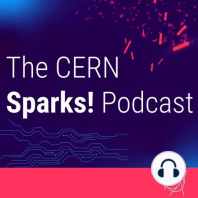2 min listen

S2 Ep3: S2 #3 Genomics: Cracking and Editing the Code
S2 Ep3: S2 #3 Genomics: Cracking and Editing the Code
ratings:
Length:
33 minutes
Released:
Oct 26, 2022
Format:
Podcast episode
Description
“We finally have a way of making an organism resistant to all viruses.” - George Church
Gene editing, complete virus resistance, longer healthspans, reversing ageing - these are no longer concepts consigned to the pages of science fiction, but real research that host Bruno Giussani explores in this episode. Jennifer Doudna, who shared the 2020 Nobel Prize in Chemistry for her foundational work on the gene-editing technology CRISPR, talks about the first 10 years of CRISPR and the possibilities created by its combination with artificial intelligence. George Church, considered the founding father of genomics, shares some of his latest research that could lead to making us resistant to all pathogenic viruses and expand our healthspan. Abasi Ene-Obong, CEO of startup 54Gene in Nigeria, describes his work to make sure African genetic data become better represented in the field.
Guests: Jennifer Doudna, George Church, Abasi Ene-Obong
Host: Bruno Giussani
Production
CERN, Geneva: Claudia Marcelloni, Lila Mabiala, Sofia Hurst
Whistledown Productions, London: Will Yates and Sandra Kanthal
Copyright: CERN, 2022
Gene editing, complete virus resistance, longer healthspans, reversing ageing - these are no longer concepts consigned to the pages of science fiction, but real research that host Bruno Giussani explores in this episode. Jennifer Doudna, who shared the 2020 Nobel Prize in Chemistry for her foundational work on the gene-editing technology CRISPR, talks about the first 10 years of CRISPR and the possibilities created by its combination with artificial intelligence. George Church, considered the founding father of genomics, shares some of his latest research that could lead to making us resistant to all pathogenic viruses and expand our healthspan. Abasi Ene-Obong, CEO of startup 54Gene in Nigeria, describes his work to make sure African genetic data become better represented in the field.
Guests: Jennifer Doudna, George Church, Abasi Ene-Obong
Host: Bruno Giussani
Production
CERN, Geneva: Claudia Marcelloni, Lila Mabiala, Sofia Hurst
Whistledown Productions, London: Will Yates and Sandra Kanthal
Copyright: CERN, 2022
Released:
Oct 26, 2022
Format:
Podcast episode
Titles in the series (14)
Trailer - The CERN Spark's Podcast - Future Intelligence by The CERN Sparks! Podcast